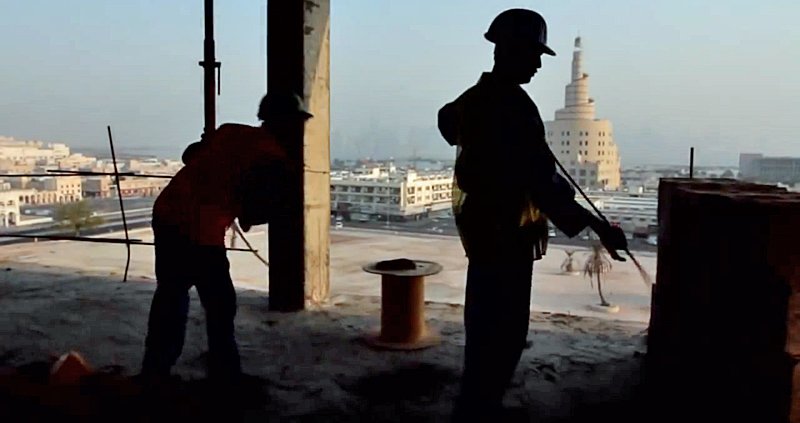
Amnesty International has claimed that the mistreatment of those working on Qatar 2022 FIFA World Cup stadiums is continuing after the newly refurbished Khalifa International Stadium opened.
The 40,000-capacity venue, which is due to host matches up to the quarter-final stage, became the first World Cup stadium to be finished.
FIFA President Gianni Infantino was among the 40,000 strong crowd who saw Al Sadd, led by Spain and Barcelona legend Xavi Hernández, defeat Al Rayyan 2-1 to lift the 2017 Emir Cup, Qatar’s most prestigious trophy.
During the build-up to the 2022 World Cup, criticism has been directed at organizers over the treatment of migrant workers who are helping with stadium construction.
Amnesty International have alleged that FIFA and Qatar’s Supreme Committee for Delivery and Legacy have not done enough to address the matter, and have even suggested that the tournament could be moved to a different host nation.
James Lynch, Amnesty International’s global issues deputy director, said the problem has not been solved and construction companies continue to treat workers poorly.
“It’s a year since Amnesty International exposed the exploitation of migrant workers who helped to build the Khalifa Stadium, but abuses on Qatar 2022 sites have continued,” Lynch said.
“Qatar’s World Cup organizers have placed special requirements on contractors that are supposed to stop this happening, but the reality is that workers on their sites still live under Qatar’s repressive sponsorship system, which gives employers powerful tools to abuse.
“With hundreds of thousands more people being recruited to build and service at least seven more World Cup stadiums, along with the infrastructure to support the tournament, many more migrant workers are at serious risk over the next five years.
“Migrant workers at Khalifa International Stadium have already suffered the consequences of Qatar and FIFA’s failure to genuinely address the dangers of Qatar’s sponsorship system.
“An urgent rethink is needed to prevent labor abuse becoming the legacy of the 2022 World Cup.”
insidethegames has asked FIFA for a comment in response to Amnesty International’s comments.
During the first match to be played at the renovated Khalifa International Stadium, Al Rayyan took the lead when skipper Rodrigo Tabata scored just four minutes after half time.
However, seven minutes later, Al Sadd’s Hassan Al-Haydous scored from the penalty spot to level the contest.
Xavi then provided Jugurtha Hamroun with a chance to score the winner and he fired home in stoppage time to seal victory for Al Sadd.
Originally built in 1976, the venue hosted athletics at the Asian Games in 2006 as well as the Opening and Closing Ceremonies.
It will also welcome the 2019 International Association of Athletics Federations (IAAF) World Athletics Championships.
Work has also started on the Lusail Stadium, the 80,000-seater venue which is scheduled to host the 2022 World Cup final.
The venue, located around 20 kilometers north of capital city Doha, is also due to stage the opening match of the tournament.
Officials have expressed their confidence that it will be completed by 2020.
It has been claimed the look of the stadium, designed by British architects Foster and Partners, will be unveiled later this year.
By Max Winters
Republished with permission from insidethegames.biz.